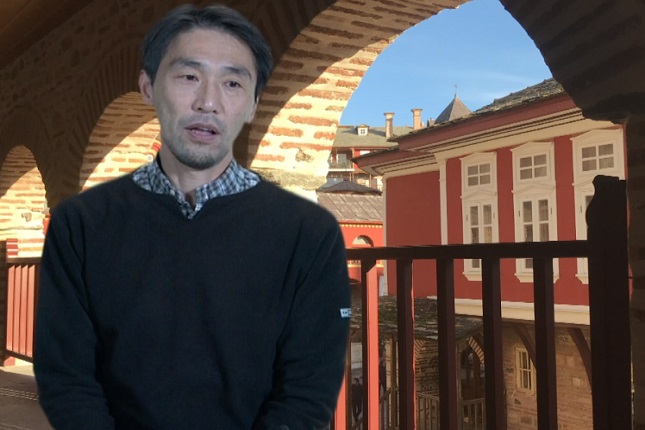
Nobuyuki-Gheoghe Nukina, at the first part of his interview to Pemptousia, speaks on how he became Orthodox and talks about Orthodoxy in Japan.

Nobuyuki-Gheoghe Nukina, at the first part of his interview to Pemptousia, speaks on how he became Orthodox and talks about Orthodoxy in Japan.
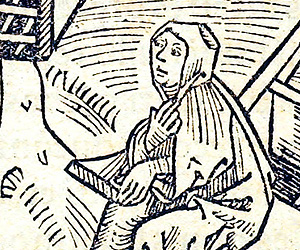
When people extracted gold, silver and precious stones from the earth, and when they’d made more soft clothes than they needed, and when they’d got a lot of other such things, which are the causes of wars and revolutions and tyrannical regimes, they were overwhelmed with an absurd form of disdain. So, they don’t show any kindness to their unfortunate fellow human beings, nor do they even want to give of their excess wealth to provide the necessities of life for others. What callousness! What harshness! If nothing else, they don’t even think that poverty and riches, freedom and slavery and suchlike made their appearance in the human race only after the Fall, as sicknesses which are manifested together with evil ...

As Christians, we’re always striving. The Christian life is a continual, ceaseless struggle. But the period of Great Lent, as a time of preparation for the celebration of Easter, the greatest feast, requires a more intense effort, more fervent zeal and a more methodical struggle. What constitutes the spiritual struggle of this time, which we’re called upon to engage in? It’s defined clearly in the third hymn of the Triodio , by Saint Theodore the Studite: ‘Let us set out with joy upon the season of the fast, and prepare ourselves for spiritual combat. Let us purify our soul and cleanse our flesh; and as we fast from food, let us also abstain from every passion. Rejoicing in the virtues of ...
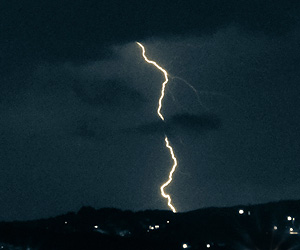
The wrath of God is a painful sensation for those whom He chastises. And it becomes a painful sensation when unwished for thoughts come, through which God often directs the mind which has become puffed up, because of its virtue and knowledge, into timidity and humility. In this way, He grants people knowledge of themselves and a sense of their own weakness. When they’re aware of this, they cast off the vain pride of their heart. The wrath of the Lord is the cessation of the provision of the divine gifts, and is visited upon those minds which soar to the heights and boast about the good things which God has given them, as though they were their own » Saint Maximos the Confessor

Previous post . And often enough it’s the tares that win out in the end. The higher we rise above the ordinary sins of most people, the more we feel tempted to make gods of ourselves because of our personal victory- which we’re sure is very great, the more we burn incense to our personal powers and the more we distance ourselves from God. Say perfection depended on spirituality itself, on restraint to the point of mortifying the lower eternal instincts, then how many sages and philosophers, how many atheists and followers of a variety of systems for the organization of external life would have been saved, despite scorning the notion of God and presenting themselves as proof that we ...

The way to acquire peace is as follows: forget entirely your fall and the sin and give yourself over to the thought of God’s great and ineffable goodness and the fact that He is willing and desires to forgive every sin, however serious, inviting sinners in a variety of ways to come to their senses and be joined to Him in this life and, by His Grace, to be glorified and be eternally blessed in the next. And when, with these and other thoughts and deliberations, you have calmed your mind, then you can return to your fall, doing what I said above. When the time comes for confession (which I urge you to attend very frequently) remember all your sins and, ...

God will behave towards us in the same way as we behave to our brothers and sisters. We’ll be measured by the same standard we use to measure others. » Saint Nicholas Velimirovich
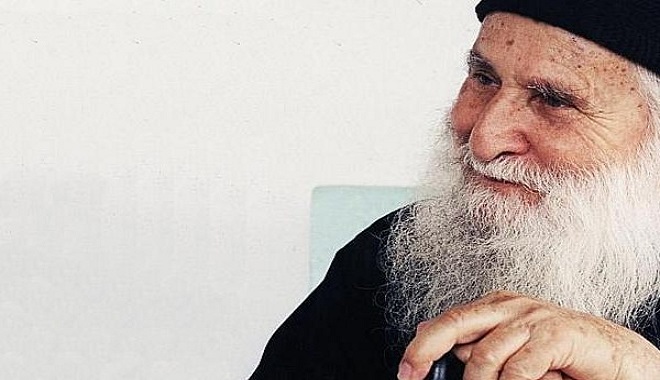
With a variety of definitions, our Fathers lead us to humility, but the meaning is almost the same: the comprehensive labour of love that supports all the other virtues. We shall now note some of the sayings of the Fathers which refer to the qualities and fruits of the humble outlook and the manner in which those who have it behave. This will give us more practical knowledge. Anthony the Great, when he was once in an ecstatic state, saw all the land around him full of traps set by Satan. He sighed and asked God to tell him how anyone could avoid them and then heard a voice telling him: ‘only with humility’. The same saint, when he was asked by Pimin ...

Sometimes, whether in church or at home, we pray in a state of spiritual or bodily enervation. Our soul’s weak, cold and barren. But as soon as we make the effort to force our heart really to pray to God, and turn our thoughts to Him in faith, our soul immediately comes alive, warms up and bears fruit.
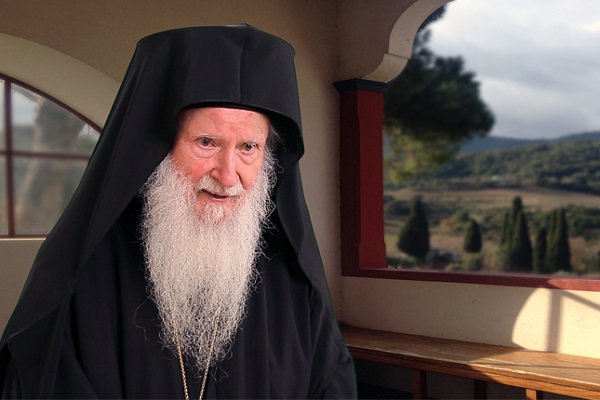
In the days that idolatry prevailed, there were annual public festivals in the beginning of March. These festivals were full of revelry, with wild dances and rich foods. Such idolatrous feasts seemed to linger into the Christian era, continuing until the 7th Century. Sadly, many who were baptized Christians also continued to participate in these enduring spectacles. That is why the 6th Ecumenical Council, which met in Constantinople in 681, addressed this problem directly. From the Council came the 62nd Canon, which banned Christians from participating in these obscene festivals, which have no place in a holy life. In order to protect the faithful from such things, the Church has set today’s passage from St. Paul’s Epistle to the Romans ...
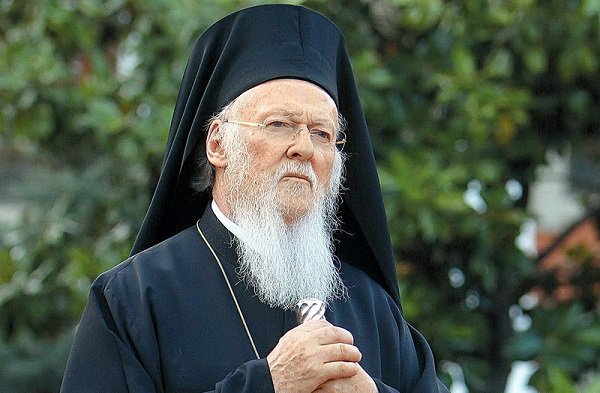
+ BARTHOLOMEW By God’s mercy Archbishop of Constantinople-New Rome and Ecumenical Patriarch To the Plenitude of the Church May the Grace and Peace of our Lord and Savior Jesus Christ be with you Together with our Prayer, Blessing and Forgiveness * * * With the grace of God, the giver of all gifts, we have once again arrived at Holy and Great Lent, the arena of ascetical struggle, in order to purify ourselves with the Lord’s assistance through prayer, fasting and humility, as well as to prepare ourselves for a spiritual experience of the venerable Passion and the celebration of the splendid Resurrection of Christ the Savior. In a world of manifold confusion, the ascetic experience of Orthodoxy constitutes an invaluable spiritual asset, an inexhaustible source of divine ...

Behold, my friends, the arena of Holy Lent opens today. Behold, we’ve arrived at the gate of the fast and are about to engage in the warfare of the spirit. We’re now approaching the harbour of salvation and should be glad and rejoice more than when we ate and spent to our heart’s content. Let’s cross the threshold of restraint, then, with much rejoicing and jubilation, thanking the Lord that we’ve escaped the powerful and harsh turbulence of the billows of the spiritual tempest and have reached the safe haven, which is calm and secure, is balmy and tranquil, truly serene and life-saving. We’ve left behind the pall of disbelief, the wintry blasts of dissipation; we’ve fled secular turmoil and ...

Our life’s like a children’s game. With the difference that this game isn’t innocent, but sinful. We adults have a mature brain, we know the purpose of our life and we shouldn’t neglect this aim by getting involved in unimportant and pointless things. Because in this way, our life becomes a puerile and unforgiveable game.

Take care of your soul. Look after it and adorn it. Cleanse it from the filth of sin. Cast out from it the ugliness of evil and, with the loveliness of virtue, make it bright and beautiful.

The question of evil has been addressed hardly at all in the Orthodox Church. In comparison with other Christian dogmas, the answer is still expressed in a form that, of course, reveals the truth, but rather nebulously developed. Evil has its origins and draws its strength from the free will of created spirits, be they a part of the ranks of angels or human persons. This is the Orthodox position. But it’s a long way from being fully comprehensible. Nevertheless, the Church at one stage- at the time of the Gnostics- came under great pressure to develop the theory concerning the source of evil. All the Gnostic movements were tormented by the question: ‘Where does evil originate?’. And they all came ...
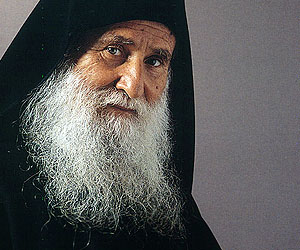
Βlessed and favoured people who are humble are meek, calm, serene, attached to virtue, opposed to evil, untroubled by any circumstance or threat. They live in the bosom of the faith, like infants in the maternal embrace of grace. They never live for themselves, because they’ve forgotten what that is. They’ve become one with the others; they become all things to everyone, in order to bring solace to them. They cry with those who are weeping and rejoice with those who are glad. Since, by grace, they’ve been absorbed into Christ the Saviour, they bear all burdens, without ever distressing or embittering other people. In the fullness of their love towards others, even towards irrational creation, by their submission to ...
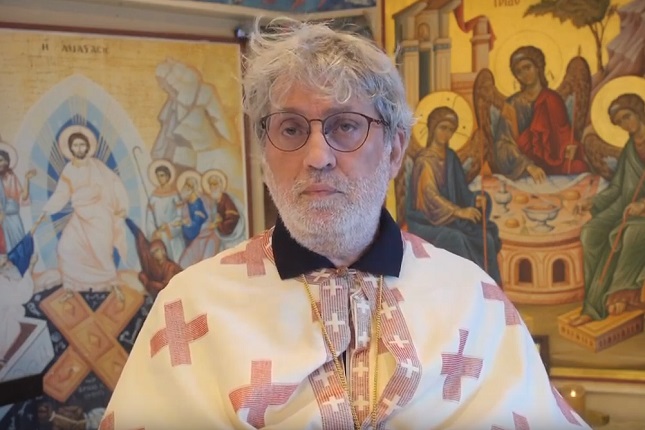
Watch Fr Jonah’s from Taiwan sermon on the gospel of the Last Judgement (Matt 25, 31-46).
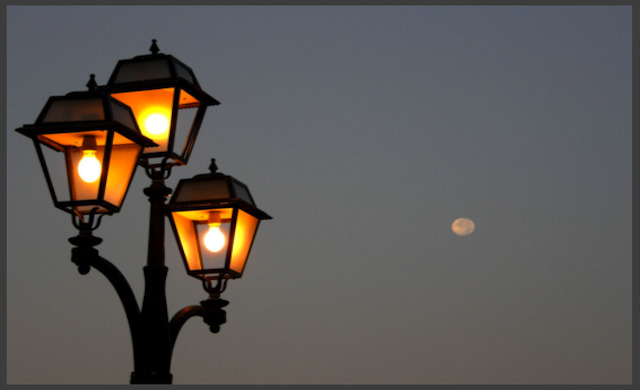
Never say ‘I’ll do that tomorrow’, because only that second we’re living in belongs to us. We don’t know if we’ll make it to the next second, the next minute.

From the Lavsaïko by Palladios This account is quite well-known, but because its subject matter is related to the Gospel reading for the Sunday of Meat-fare, it is topical and therefore bears repeating (WJL). 6. On the avaricious nun. There was in Alexandria a woman who was a nun, but in name only. Her clothing was modest, but by disposition she was miserly, severe and excessively fond of money. She loved gold more than she loved Christ. She never gave anything away to strangers, to the poor, to the distressed, to a monk or a nun, nor did she give a farthing to the Church. Despite the advice of the holy Fathers, she wouldn’t part with her money. She had some relatives and adopted ...